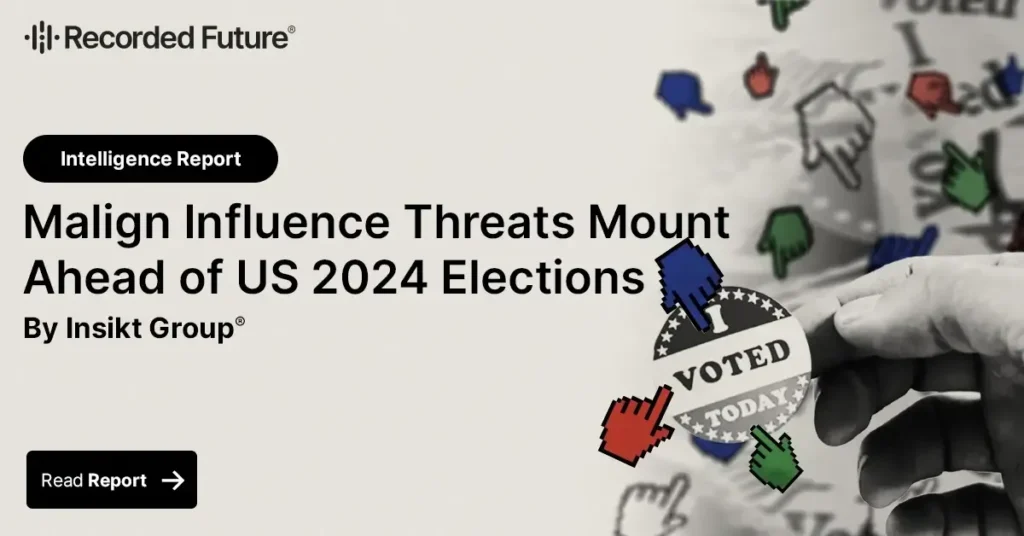
Ahead of the US 2024 elections, malign influence operations by Russia, China, and Iran are ramping up, aiming to shape public opinion and disrupt the electoral process. These activities are reminiscent of previous attempts to influence elections in France and other democratic countries. Insikt Group has identified three major thematic trends: exploiting protests related to the Israel-Hamas conflict to undermine trust in US institutions, reducing support for military aid to US allies, and influencing voter perception of political candidates. Domestic violent extremists (DVEs) also pose a significant threat by targeting election personnel and echoing foreign narratives.
Malign Influence Threats Mount Ahead of US 2024 Elections
The US 2024 presidential elections are approaching, and with them comes a heightened risk of foreign and domestic influence operations. These operations are designed to shape public opinion, disrupt the electoral process, and ultimately achieve strategic geopolitical goals. The Insikt Group has been closely monitoring these developments and has identified key trends and threats.
Foreign Influence Operations
Russia
Russia remains highly active in conducting malign influence operations ahead of the US elections. The Doppelgänger and CopyCop networks, along with assets previously associated with the Internet Research Agency (IRA), are using sophisticated tactics to impersonate US citizens and media outlets. These networks aim to exploit socio-political divisions in the US and undermine public trust in the electoral process. Despite high levels of activity, these operations likely have not yet significantly impacted voter behavior.
China
China’s Empire Dragon network is amplifying content on polarizing domestic issues such as racial inequality and campus protests. Although these operations have achieved little organic engagement, they continue to produce high volumes of content with the aim of sowing discord. China’s approach to the US elections is likely cautious, avoiding large-scale cyber-enabled influence to protect its international reputation.
Iran
Iran is using a cyclical approach to spread anti-US propaganda related to the elections. This includes developing covert social media accounts and utilizing the International Union of Virtual Media (IUVM) network to disseminate content. While Iran’s efforts have seen minimal engagement so far, they pose a threat to US political stability.
Domestic Violent Extremists (DVEs)
DVEs in the US are contributing to the threat landscape by physically threatening election officials and infrastructure. These actors are motivated by various ideological beliefs and are likely to increase their activities as the elections draw near. The attempted assassination of former President Donald Trump has exacerbated tensions, with DVEs potentially seeking to use violence to influence political outcomes.
Mitigation Strategies
To counter these threats, a whole-of-government approach is needed, integrated with private industry and social media platforms. Key strategies include:
- Proactive Monitoring: Utilizing tools like the Recorded Future Intelligence Cloud to identify emerging threats in the information environment.
- AI-Driven Analysis: Leveraging AI to process large volumes of influence content, extract narratives, and draw analytical conclusions.
- Public Awareness: Media organizations and the public sector should continue to inform the public about the tactics, intents, and impact of foreign influence operations.
The 2024 US elections are set against a backdrop of increased influence operations. While these activities have not yet significantly impacted the electoral process, they pose a serious threat to public trust and democratic institutions. A coordinated effort involving government, private sector, and media organizations is essential to counter these threats and protect the integrity of the elections.
To read the entire analysis, click here to download the report as a PDF.


